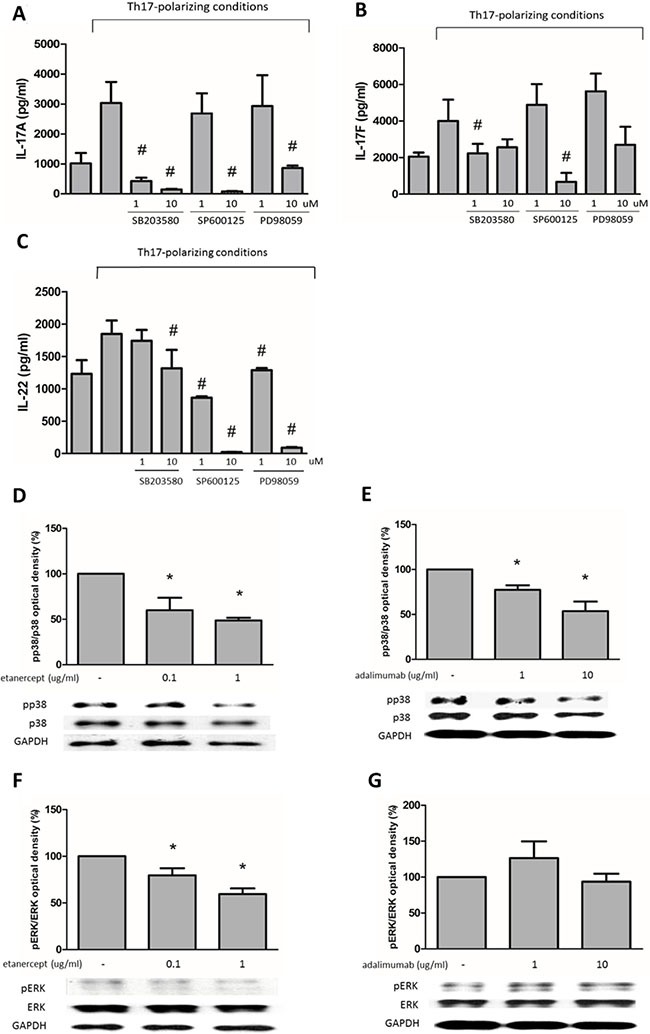Figure 3. The suppressive effects of etanercept and adalimumab on IL-17A, IL-17F and IL-22 expression in human Th17-polarized cells through MAPK pathways.

(A) Human Th17-polarized cells were induced from purified CD4+ T cells from healthy subjects. Pretreatment with SB203580 (a p38 inhibitor, 10−6–10−5 M), SP600125 (a JNK inhibitor, 10-5 M) or PD98059 (an ERK inhibitor, 10−5 M) significantly suppressed IL-17A expression in Th17-polarized cells. (B) SB203580 (10-6 M) and SP600125 (10−5 M) significantly suppressed IL-17F expression in human Th17-polarized cells. (C) Pretreatment with SB203580 (10−5 M), SP600125 (10−6–10−5 M) and PD98059 (10−6–10−5 M) could significantly suppress IL-22 expression in Th17-polarized cells. #P < 0.05 for the comparison of Th17-polarized conditions with and without MAPK inhibitor pretreatment. (D) Etanercept (0.1 and 1 μg/ml) and (E) adalimumab (1 and 10 μg/ml) decreased pp38 levels in human Th17-polarized cells. (F) Etanercept (0.1 and 1 μg/ml) but not (G) adalimumab decreased pERK levels in human Th17-polarized cells. For western blot analysis, the standard deviations of the optical density data were calculated for three independent experiments, and one experiment representative of the set of three is shown. *P < 0.05 for the comparison of Th17-polarized conditions with and without etanercept or adalimumab pretreatment.
